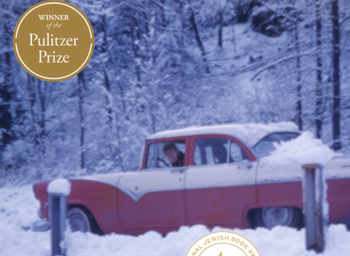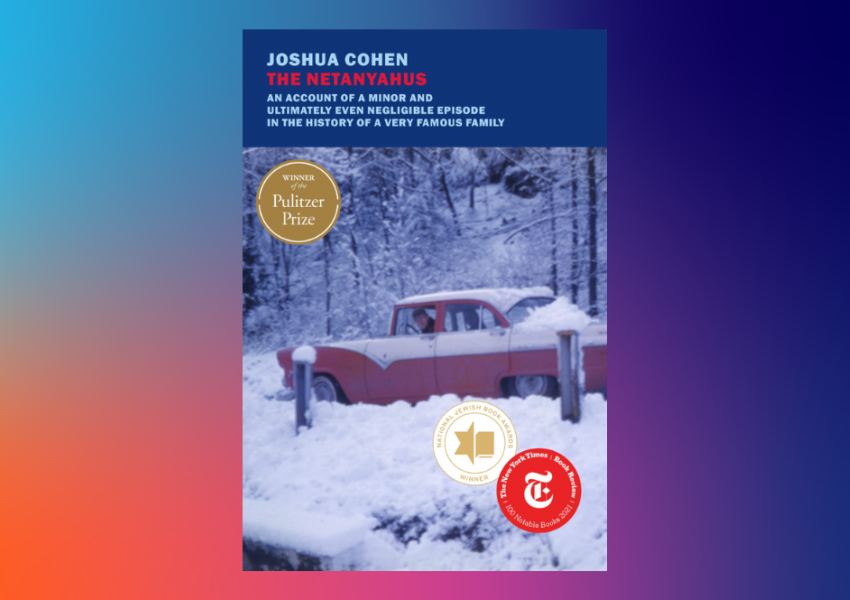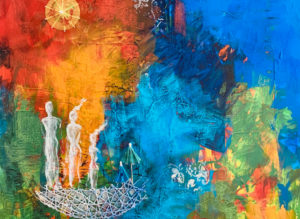A Very Famous Family Causes Mayhem in this Year’s Pulitzer Prize-Winning Novel “The Netanyahus”
Published Sep 25, 2022

Joshua Cohen Blends Fact and Fiction

The rambling tongue-in-cheek subtitle of Joshua Cohen’s novel, The Netanyahus: An Account of a Minor and Ultimately Negligible Episode in the History of a Very Famous Family, points to the raucous episode anchoring this dense novel of ideas. The 2022 winner of the Pulitzer Prize in Fiction, Cohen is averse to being grouped with the triumvirate of previous Jewish winners, Bernard Malamud, Saul Bellow, and Philip Roth.
He asserts, “They wouldn’t be the first ones that come to mind if I were speaking about American Jewish writers. Malamud’s novel, The Fixer, [about antisemitism in the Russian Empire] was an exceedingly, explicitly Jewish novel for which he won the Pulitzer. Roth’s Pulitzer for American Pastoral, was an exceedingly American novel. And Bellow’s Pulitzer for Humboldt’s Gift, was, to my mind, given to him because he was in his sixties and neglected for long enough.”
The idea that Cohen’s Pulitzer is yet more validation for American Jewish literature is anathema to him. “I think the worst thing to be would be validated or valid. And valid in whose mind? I think that assertion speaks, historically, of diasporic insecurity.” The novel’s epigraph from Zionist revisionist Ze’ev Jabotinksy illustrates Cohen’s point. In a speech that Jabotinsky gave on Tisha B’Av in 1938, a solemn day on the Jewish calendar commemorating the destruction of both ancient Temples, he declared, “Eliminate the Diaspora or the Diaspora will eliminate you.”
Diasporic insecurity is very much a part of Ruben Blum’s mindset, the narrator of “The Netanyahus.” Blum was raised by immigrant parents in the Bronx. Once a student in an austere cheder run by “gaunt, shuffly rabbis,” he nearly choked on their steady diet of Jewish suffering and ongoing loss in a post-Holocaust world. Blum flees the cheder, and his suffocating Jewish neighborhood, for the classrooms of City College and beyond.
When “The Netanyahus” opens, Blum is looking back at 1959-60, when he was the only Jew teaching or working at Corbin University. Corbin is a stand-in for Cornell University, and the upstate fictional New York town of Corbindale is an incubator for the antisemitic microaggressions Blum experiences and the 1950s suburban fantasies that distract his wife Edith and teenage daughter Judy. Edith is concerned about keeping up appearances, and Judy ardently wants a nose job, bringing on echoes of Roth’s “Goodbye Columbus.”
Early on, Bloom takes issue with his academic identity linked to his Jewish one and proclaims, “I am a Jewish historian, but I am not a historian of the Jews.” But as the token Jew on campus, he is considered an expert on Jewish history by default, thus earning him a place on Ben-Zion Netanyahu’s hiring committee. Ben-Zion is the real-life father of Israeli hero Yonatan Netanyahu, who died rescuing Jewish hostages in Uganda on a hijacked plane in 1976, and Benjamin (Bibi) Netanyahu, Israel’s longest serving prime minister. In the novel, Ben-Zion’s expertise is medieval Jewry. Appointing the Jewish Blum, an expert in the history of American taxation, to evaluate Netanyahu’s work in medieval history is yet another microaggression that posits all Jews are interchangeable.
Nevertheless, reviewing Netanyahu’s application, Blum notices something disturbing about Netanyahu’s scholarship. According to Ben-Zion, the aim of the Spanish Inquisition was not to convert Jews and expel those who refused; it was to convert them back and make them suffer. Despite going into such detail about Ben-Zion’s research, Cohen says he is neither an expert nor is he interested in becoming an expert at “re-legislating the 15th century or Netanyahu’s subject of the entire Middle Asians up until the Iberia inquisitions. It’s far more compelling for me to think of the character of a man animated by these concerns – a man who is living in the most consequential decade of modern Jewish history.”
Cohen is referring to the Holocaust and the establishment of the State of Israel for which Ben-Zion was on the margins of both. “[Netanyahu] doesn’t have the sad honor of being murdered in Europe, nor is he accorded the happy honor of building his state. He’s in suburban Long Island and Philadelphia when [those events] take place. Someone, who in the grip of these historical changes, this death and rebirth, is digging back into the medieval history to find a historic precedent or patronization of history that support a lead definition on his people. That, to me, is fascinating. People incarnate ideas and become metonymic substitutes for what they believe.”
As it builds to the upcoming mayhem in the novel, The Netanyahus explores topics preoccupying Diaspora Jews – the history of Jewish suffering, the roots of Zionism, and a consideration of American Jewishness versus Israeli Jewishness. The Netanyahus collages scenes of mid-century American Jewry and the campus novel. In the mix are hints of Roth’s mischievousness and Bellow’s lyricism. The Netanyahu family –– Ben-Zion, his three rambunctious sons, and Tzila, the obnoxious mother of this crew – shows up on Blum’s doorstep on New Year’s Day 1960. From that point, the Blum family’s carefully constructed world of Wedgewood, an early model color television, and perfectly arranged hors d’ oeuvres, literally implodes into a bawdy Three Stooges-like scene.
The highlight of Ben-Zion’s campus visit is a lecture he delivers to students in the religion department. Cohen says that many scenes in Netanyahu’s final lecture at Corbin assert a pattern of Jewish history which “shows a failed tribalism” – a tribalism that Cohen says calls to mind Trump’s America. It also bears a resemblance to Jabotinsky’s dire warning about the Diaspora consuming Jews. “Netanyahu is asserting a patronization of Jewish history that’s total tragedy,” notes Cohen. “On the other hand, he’s saying tribalism is what happens when empires fail. When people feel abandoned by their government and their institutions, they retreat into their most primal communities. This was true at the birth of Zionism and is something that feels true in Trump’s America.”
Cohen’s afterword about a real-life meeting with Harold Bloom at Bloom’s home in New Haven adds to the strangeness of the Netanyahu’s American fictionalized sojourn. Bloom’s actual recollection of hosting Ben-Zion Netanyahu on a campus visit to Cornell feels misplaced at the end of the book. Ben-Zion did teach history on the Ithaca campus for a few years in the 1960s. However, Cohen stops short of acknowledging that he based the Blum character on Bloom or appropriated Bloom’s story about Netanyahu. “I did not want to write [Ben-Zion as] Harold,” Cohen says. “When we met [Bloom] was narrating an event that happened 60 years earlier. And so, there are multiple points of purposeful fictionalization and perhaps accidental fictionalization on my part and Harold’s part. I think the book benefitted from all of them.”
Cohen says that The Netanyahus has elicited a myriad of responses in Israel. “Israelis read it as a diagnosis of Israel and a picture of the ugly Israeli. They also see it as a picture of how far the Israeli public has drifted from the American Jewish public politically. Whereas American readers see this as a book about American Jewry and Israelis’ opinions of them, [the character of Ben-Zion] Netanyahu calls out Americans on their compromises. So, the book has a range of responses. I don’t know if I wrote the book to elicit that range, but I certainly feel that range is in me.”
Click here to find The Netanyahus: An Account of a Minor and Ultimately Negligible Episode in the History of a Very Famous Family at your local library.
Click here to buy The Netanyahus: An Account of a Minor and Ultimately Negligible Episode in the History of a Very Famous Family at bookshop.org.
Judy Bolton-Fasman is the author of ASYLUM: A Memoir of Family Secrets from Mandel Vilar Press.
Reflections
3 questions for after you've read the book:
Question 1
How successfully did Joshua Cohen fictionalize the Netanyahus' story?
Question 2
Reluctant to be included with previous Jewish Pulitzer Fiction writers Roth, Malamud, and Bellow, do you see their influences on his work?
Question 3
Cohen notes he's more interested in his characters than in the histories that they study. How important, though, is history in this novel?
Want more?
Get curated JewishArts.org content in your inbox


